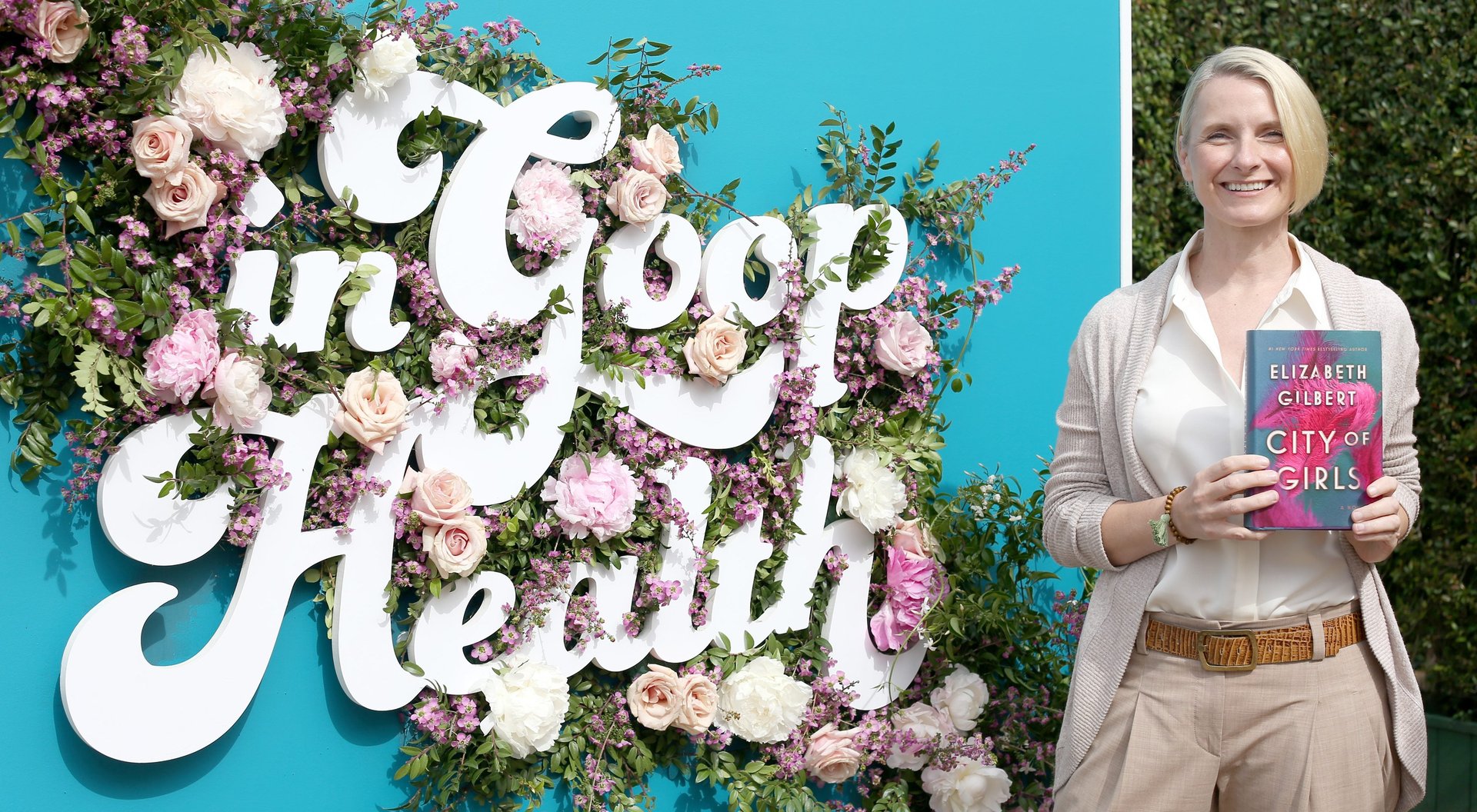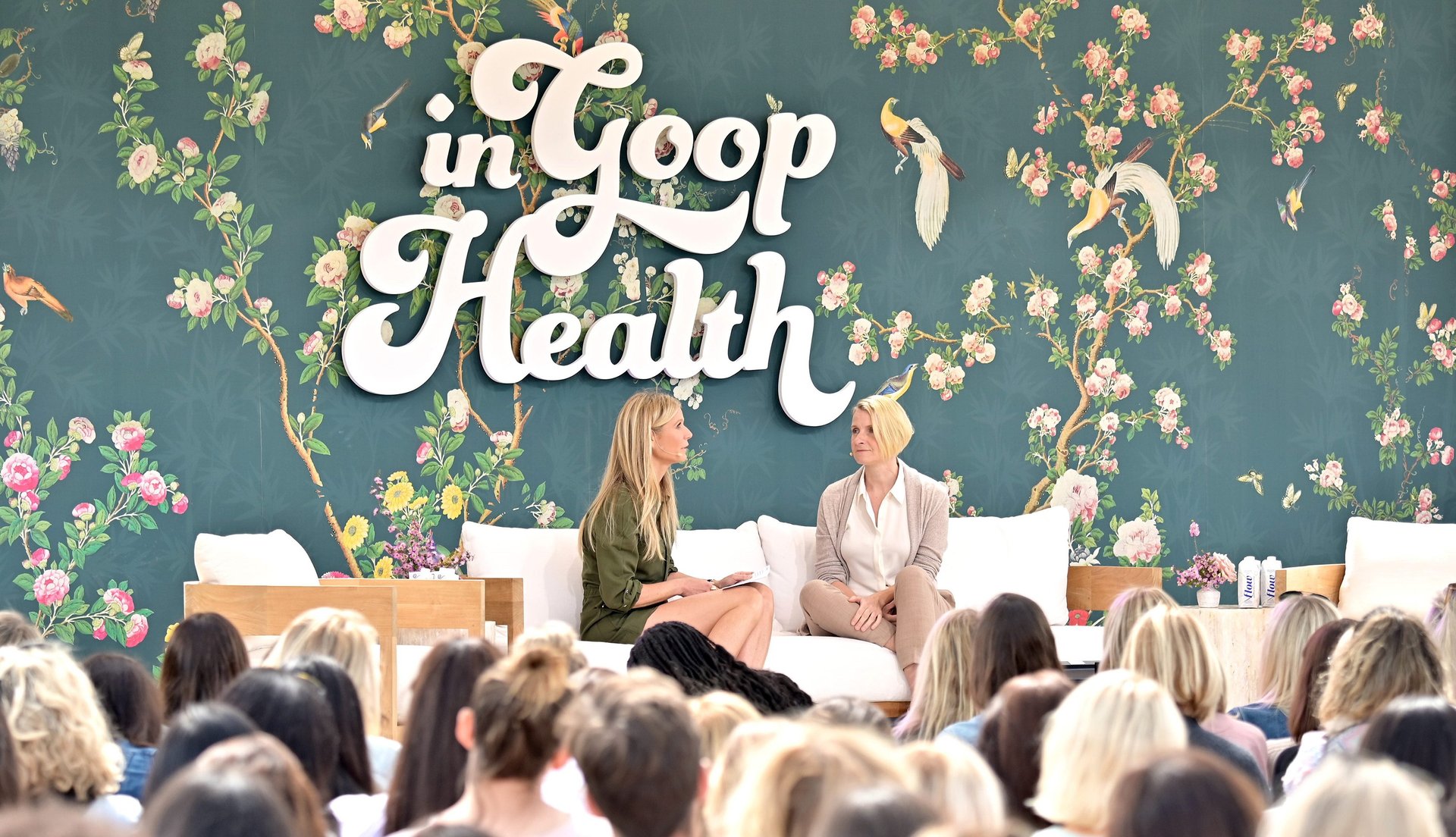Elizabeth Gilbert’s simple method for conquering fear
I have been a professional writer for more than a decade, but pretty much every time I sit down at my computer, my chest tightens. If I’m writing something personal, it’s worse. It’s happening right now. But if I want to keep doing this job, I have to live this fear. So just now I tried something different: I offered my fear a seat at the table where I’m working and suggested, in the manner of my grandmother, that it lay down its head for a few minutes.


I have been a professional writer for more than a decade, but pretty much every time I sit down at my computer, my chest tightens. If I’m writing something personal, it’s worse. It’s happening right now. But if I want to keep doing this job, I have to live this fear. So just now I tried something different: I offered my fear a seat at the table where I’m working and suggested, in the manner of my grandmother, that it lay down its head for a few minutes.
This was the powerful suggestion that author Elizabeth Gilbert—who shot to fame after publishing her 2006 memoir Eat, Pray, Love—made on Saturday as the keynote speaker at “In Goop Health,” the sixth such summit hosted by Gwyneth Paltrow’s wellness empire. Gilbert’s ninth book, City of Girls, comes out next month. Sitting onstage with Paltrow, she told the audience that even as a successful author, her creative process remains fraught with fear.
“I just want you to know that [fear] never, ever, ever goes away. So just relax and enjoy that idea,” she said, to laughter in the crowd. “And that is nothing to be ashamed of.”

In past years, Goop’s annual event in Los Angeles (others have been held in New York and Vancouver) has felt like a woo-woo wellness Coachella: a small, privileged circus of psychic readings, aura photography, and crystal therapy. This year, although ladies were still pulling down their leggings for B12 shots and sitting still for “ear seeds” (I don’t know), the messaging was stronger and more consistent, and the takeaways more meaningful.
Gilbert’s point—and that of many other speakers throughout the day, be they trial lawyers, intuitive mediums, or Hollywood stars—was that to achieve true connection with each other, ourselves, our creativity, the divine, or even a voice from the beyond, we must first confront our fears, let our guards down, and make ourselves vulnerable by speaking the truth.
Gilbert, bless her, even offered up a strategy for doing so. In conversation with Paltrow, she described fear as a rudimentary, reptilian brain function that arises anytime we try to do something with an unclear outcome.
“That’s why if you try to sit down and write a poem, it literally feels like you’re going to die,” Gilbert said. “Your fear only has one job and that is: No, don’t, don’t, don’t, don’t, death, murder, mayhem, back it up, shut down, stay on the couch, be safe, don’t die. And so the relationship that I’ve established over the years is just a very loving conversation with that—a very maternal way that I speak to that, because I know that it’s just not that smart. I just talk to it like it’s my dumb cousin who played hockey and just isn’t that bright, and I’m like, ‘I know. I know it’s scary, but you know what? Mommy’s got this.’
“As soon as I say, ‘It’s okay for you to be here, and you can stay with me and we’re going to do this together,’ it just relaxes and it goes to sleep like a toddler in a car-seat,” she said.
This embrace of vulnerability is reaching well beyond Goop. Last month, bestselling author Brené Brown—whose research on the topic first went viral with her 2010 Ted talk “The Power of Vulnerability“—debuted a Netflix special, A Call to Courage. In it, she encourages viewers to “choose courage over comfort” and live authentically in their work, love, and relationships—risks and haters, be damned.
On Saturday, Paltrow invoked Brown (whom she had recently interviewed on her podcast), encouraging the audience to step away from fear and toward curiosity. Other speakers at the summit, including Olivia Wilde, Taraji P. Henson, and Busy Philips referenced the power of speaking out about shame. It was as if they had all watched A Call to Courage together.
But the courage to live with fear—to continue onto a limb when we’re unsure of the outcome—can affect far more than just our creativity. Gilbert, who said her acceptance of fear changed her relationship with the emotion, also spoke of mourning her partner Rayya Elias, who died of cancer last year.
“Soon after she died, I took out my laptop and I just, I wrote, ‘Rayya, I cannot live without you. And so I won’t. Um, so I need you and I’m writing to you and I need you to write back to me. Um, and I have my hands on the keys, so go. And I’m really afraid that this isn’t gonna work, but I really need to talk to you and I’m really scared that you’re not going to be there,'” she said. “And the next line coming out of my hands was Rayya saying, ‘Well, if you’re scared, it’s not gonna work. You better not fucking try it.’ And I was like, ‘There she is!’”
Gilbert said she continues this conversation today, and doesn’t need to know whether the response is “Rayya’s spirit, is an angel, is God, or if it’s just that she’s so internalized into me because I knew her and loved her so well that I actually now own her voice in me.” The point is that she never would have found that voice without facing the fear that came before it, and having the courage to put her hands on the keyboard.